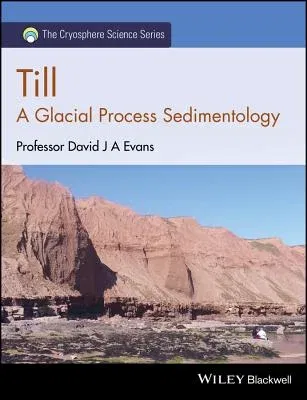Provides the first comprehensive review of the current state of the
science on tills
It is critical that glacial scientists continue to refine their
interpretations of ancient archives of subglacial processes,
specifically those represented by tills and associated deposits, as they
form the most widespread and accessible record of processes at the
ice-bed interface. Unfortunately, despite a long history of
investigation and a lexicon of process-based nomenclature, glacial
sedimentologists have yet to reach a consensus on diagnostic criteria
for identifying till genesis in the geological record. What should be
called till? Based on the author's extensive field research, as well as
the latest literature on the subject, this book attempts to provide a
definitive answer to that question. It critically reviews the global
till literature and experimental and laboratory-based assessments of
subglacial processes, as well as the theoretical constructs that have
emerged from process sedimentology over the past century. Drawing on a
wide range of knowledge bases, David Evans develops a more precise,
contemporary till nomenclature and new investigatory strategies for
understanding a critical aspect of glacial process sedimentology.
- Provides an in-depth discussion of subglacial sedimentary processes,
with an emphasis on the origins of till matrix and terminal grade and
the latest observations on till evolution
- Describes contemporary laboratory and modelling experiments on till
evolution and techniques for measuring strain signatures in glacial
deposits
- Develops an updated till nomenclature based on an array of knowledge
bases and describes new strategies for field description and analysis
of glacial diamictons
Written by an internationally recognised expert in the field, this book
represents an important step forward in the modern understanding of
glacial process sedimentology. As such, Till: A Glacial Process
Sedimentology is an indispensable resource for advanced undergraduates
and researchers in sedimentology, glacier science and related areas.

